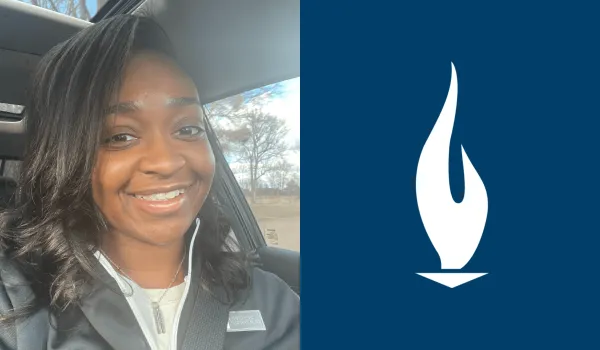
Figuring out how to pay for your education is a tough job. The costs of tuition, room, board, and books are not cheap, but neither is the debt that comes with taking out student loans. There's nothing wrong with wanting to avoid loans or borrowing as little money as possible so you can pay it back quickly.
But you can start saving money before starting school by taking advantage of savings plans, finding grants and scholarships, and loans that help you pay for your tuition. If your goal is to graduate with minimal little debt, the time to start finding ways to pay for your tuition is now. Here are some tips to help you pay for college.
Start Saving Early
Saving money for college isn't always an easy task. You have to find ways to earn money and put it into an account or plan that accrues interest and builds income over time. You may have been fortunate and your parents decided to start a 529 plan when you were born, or a family member opened a savings account and is funding it on your behalf. But if you weren't fortunate enough to have family members taking these actions, you need to start saving as soon as you are able.
When you save money for college, you want to put that money to work. Since interest rates are low and won't offer enough of a return to grow your college fund, it's not enough to place the funds in a simple interest-bearing account. Not sure where to start? Look into a 529 plan that helps you save for college and also has the benefit of being tax-free when the funds are used to pay for higher education expenses. You can invest in a 529 plan from any state in the union and use the funds at any qualified college across the country.
Complete the FAFSA
The Free Application for Federal Student Aid, or FAFSA, is a form that helps a prospective or current college student determine their eligibility to receive student financial aid that comes in the form of loans, grants, and work-study programs that help you pay for your tuition. It also helps you determine your eligibility for state-funded scholarships and grants as well as helping educational institutions determine who qualifies for financial aid based on need or merit. You may not want to get into a lot of school loan debt, but the FAFSA is much more than helping you find loans to cover the cost of your tuition.
Fill out the FAFSA even if you think you won't qualify due to your parents' income. You may find that you're eligible for certain kinds of aid that can help you pay for your education and reduce the total amount of student loans you take on.
Find Niche Scholarships
You may be aware of major scholarships that offer large awards to those who apply according to the rules. What you may not be aware of is the fact there are thousands of scholarship programs out there that don't require you to compete against thousands of other applicants to win their award. The internet has made it easy to find these scholarships and learn how the foundation awards the money to an applicant. You may have to write essays on unusual topics that you might not have otherwise considered, but if you win the award, that's money you don't have to find.
Explore Grant Programs
Grant programs are similar to scholarships in that they don't have to be repaid. Some require an applicant to demonstrate they are in need of financial aid while others are awarded based on grade average. How much you get from a grant may depend on how much your family may contribute to the cost of your education, how much it costs to attend your school, if you're a part-time or full-time student, and if you plan to attend for the full academic year or less. All grants have different requirements, but if you can qualify, you can put the money toward your tuition and not have to pay it back later.
Explore Possible Loans
You may not have enough money set aside to pay for your tuition, and you find that you need student loans to help you cover the outstanding balance. Don't go for just any loan, however. Student loan debt is nondischargeable in bankruptcy, so you want to get a loan that has favorable interest rates and terms that you can work with. Start with FAFSA to find out what federal loans you are eligible for, along with any grants or work-study programs that are available to you. If you have exhausted federal loans, look into private student loans next.
Private Student Loans
All private student loans are not created equal. Some offer flexible repayment plans while others offer students wiggle room in making payments without penalizing their credit score. Be sure to research your options and understand all the fine print before deciding which private loan company to go with.
Parent or Federal PLUS Loans
The Parent PLUS loan is a federal student loan program that enables parents to help with the costs of tuition. The parent takes on the responsibility for repayment of the loan, not the student. A Parent PLUS loan has no grace period, and monthly payments begin almost immediately after taking out the loan. The loans are not subsidized, so interest begins accruing on the loan as soon as the money is disbursed and will continue to accrue even if the loan is in deferment.
Federal Loans
The most common type of federal loan is known as a Direct Stafford Loan. It comes into play after the scholarship and grant options are exhausted by the student. There are two types of Direct Stafford loans: subsidized and unsubsidized.
A subsidized loan is available to undergraduate students who can demonstrate financial need. The school determines how much a student can borrow, and the amount cannot exceed the financial need. In a subsidized loan, the interest is paid by the U.S.
Department of Education while the student is enrolled at least half-time, for the first six months after the student has left school, and during a period of deferment when the student is not making payments on the loan.
The unsubsidized loan has no interest payments made by the federal government and has the same requirements as the subsidized loan. Interest will accrue at all times, even when the loan is in forbearance.
Make Your Education More Affordable
There are several alternate avenues that reduce the amount you need to pay for college. You can take college classes while in high school, or go to school part-time and find regular employment to help pay for your tuition while you attend college.
Take College Classes in High School
Concurrent or dual enrollment in college and high school helps a high school student gain college credit for courses taken while still attending high school. The high school student can travel to a college campus that's participating in a college credit program, the college faculty travels to the high school to teach coursework, or the high school student can take online courses through a distance education program.
Successful completion of the course will earn the high school student college credit and eliminate the need to take that class while attending college. This enables the student to take fewer classes to earn their degree and save money. Note that Concorde does not guarantee that courses completed through other institutions will transfer to Concorde.
Go to School Part-time
If your not in a hurry or really just wanting to save yourself from debt, then working part-time during school can be a good idea. Generally, students who work while going to school decide to take less courses each semester and push back their graduation date by a semester or so. If you're not worried about taking a bit longer to graduate, working while going to school can be a good way to keep debt cost down.
Pay Off Loans Quickly
Paying off loans quickly helps you save on interest and lets you get out of debt a lot sooner. You will find that you're going to have less disposable income while you focus on paying down your loans, but it's a trade-off in that you can make a decision to live with a tight income for a short period of time or a longer period of time. As your career advances, you should make more money and gain more financial breathing room as a result. You want to set a goal that sees your income going up and your loan balances going down as quickly as possible.
The simplest way to "find" money to pay off your loans quickly is to make a budget and stick to it. Your income is predictable in that you know how much you can earn each month at a minimum. Use the minimum amount for your budget and apportion your money toward recurring bills, loan payments, groceries, and incidentals. Whatever's left over can be applied to your existing loan payment to reduce the principal balance every month.
Going to college doesn't have to incur decades of debt service for the privilege of a higher education. There are a number of options that you can take advantage of to reduce the overall costs of tuition. Take advantage of the opportunities that exist for the sole purpose of reducing your costs. It's a lot of work now, but it pays off in the long run in the form of a lower debt load.
Finding the funding for schooling is just as important as finding the right school for the next step in your professional life. If you're looking to explore your future in health care or dentistry, don't forget to check out Concorde Career College for career-focused training
Take The Next Step Towards a Brighter Future
We have a Concorde representative ready to talk about what matters most to you. Get answers about start dates, curriculum, financial aid, scholarships and more!




